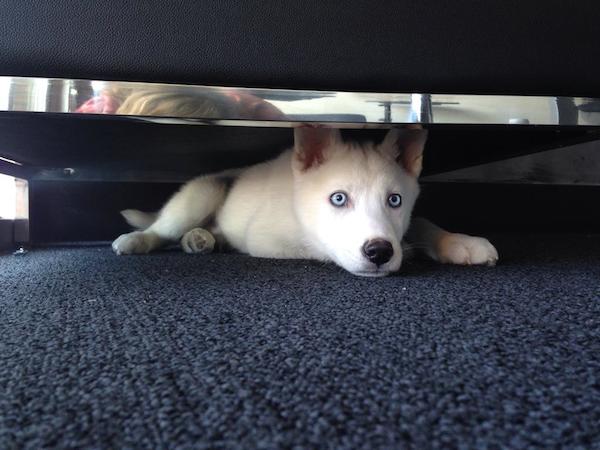As previously discussed, being transparent is the first step in becoming autonomous. Once you have the knowledge and tools in place to be transparent, you are on your way to gaining accountability. From there you gain responsibility and trust. Accountability is a natural friend to transparency. A lack of transparency and accountability can quickly turn into blame when ego is added.
I do not think it means what you think it means
Accountability is not to be confused with blame nor should it be used interchangeably with responsibility. Accountability is not something that can be given or assigned to a person. Instead it is something that you must take on yourself. It is the ability to claim your actions as your own and discuss your reasons behind them.
It’s natural
Transparency pushes you to be accountable. Being transparent about your decisions and actions makes it almost impossible not to. When everyone can see your work, it is easy to care about quality and make thoughtful decisions. Your work becomes almost an extension of yourself. Explaining your actions becomes second nature.
Why be accountable?
At Metova, we strive to be transparent and accountable. We want our customers to feel comfortable giving us the huge responsibility of building their product, and we understand the importance of each application. By holding ourselves accountable for the decisions made in the development process, and supporting our choices with clear reasoning, we aim to make everything we develop successful.
Metovian morals
The same holds true for our employees. They are expected to be transparent and accountable for their actions not only when working with customers but also with peers and bosses. This keeps issues out in the open and offers a roadmap that can be retraced to find the core problem. People want to know that when a commitment is made, you will do your best. No matter the outcome, you will hold yourself accountable. It takes pressure off others knowing that when a problem does arise, blame will not be thrown their way. Staying accountable for your actions builds your ability to become autonomous. Metova believes these qualities in our work environment help keep everyone at their best. In the words of Henry Cloud, “if you are building a culture where honest expectations are communicated and peer accountability is the norm, then the group will address poor performance and attitudes.”
It ain’t so bad
To be accountable should not always be viewed as a negative. It is only the ability to take credit for and explain your actions. Being accountable allows others to trust in your commitments. Here’s an example. You are responsible for creating a secure networking application. You make a commitment to your customer that the login screen will be completed by tomorrow. Tomorrow comes. Is it done? Either way, you hold yourself accountable for your work.
+5 Trust
The login has been completed to specifications. Being accountable allows you to celebrate all of those times you also succeed. When commitments are met and customers are happy, you are building trust.
Lucy, you’ve got some ‘splainin to do
Tomorrow comes and the login screen is not done. When you fail once after having met expectations the 100 times prior, the customer is more understanding. You have gained their respect and they can trust that at the time of the decision, you had their best interests at heart. Upon closer examination, it turned out that the password encryption for login originally requested by the customer was not as secure as they thought. Instead of building a faulty feature, your time was spent on looking for more effective options. If you have been transparent with open communication and notes on your progress, it is much easier for the customer to understand your thought process.
The blame game
Blame is when ego gets in the way of responsibility and accountability. In the example above, blame would occur if instead of explaining yourself, you tell the customer that it is his fault login is incomplete. If you were given decent instructions and an encryption algorithm that actually worked in the first place, it would have been done already. Perhaps this is true, but shying away from your actions and playing the what-if game will not get the login done any quicker. It will only breed distrust and frustration, making you hate your job and your customer question your abilities.

I know it’s not the dog
Take ownership of your life and your actions. Don’t allow someone else to take the brunt of your mistake or the glory of your success. Stop blaming the dog for the consequences of your chili-eating binge. Be accountable and gain trust and respect from your coworkers, customers, and yourself.
